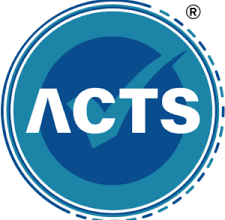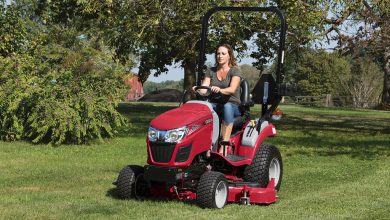Table of Contents
Toggle
As medical marijuana continues to gain traction across the United States, New York has established one of the most comprehensive medical cannabis programs. In 2014, New York became one of the states to pass the Compassionate Care Act, allowing patients to access medical marijuana for a variety of health conditions. A crucial part of this system is the medical marijuana card, which grants patients legal access to purchase and use medical cannabis. This article aims to provide an in-depth guide on obtaining a New York medical marijuana card, including eligibility, the application process, and the benefits that patients can expect.
Overview of New York’s Medical Marijuana Program
New York’s medical marijuana program is managed by the Department of Health (DOH). The program allows individuals diagnosed with specific qualifying conditions to access marijuana-based treatments to alleviate symptoms or manage chronic conditions. While recreational marijuana use was legalized for adults aged 21 and older in 2021 under the Marijuana Regulation and Taxation Act (MRTA), medical marijuana remains a separate program for patients with medical needs.
The state’s medical marijuana program provides patients with a regulated and legal means to obtain cannabis products. These products can range from oils and tinctures to edibles, capsules, vapes, and smokable cannabis flower. The program aims to ensure that patients are using medical cannabis in a safe and controlled manner under the supervision of a licensed healthcare professional.
What is a New York Medical Marijuana Card?
A New York medical marijuana card is an official document issued to individuals who meet the state’s criteria for medical marijuana use. The card grants patients the right to legally purchase cannabis from licensed dispensaries in New York State. It serves as proof that the individual has been evaluated by a registered healthcare provider and has been approved for medical marijuana use as part of their treatment plan.
Having a medical marijuana card also protects patients from legal penalties related to the possession or use of cannabis for medical purposes. New York’s laws are specific in allowing cannabis use only for qualifying medical conditions, and the card provides a legal framework for patients to access marijuana as a form of therapy.
Qualifying Conditions for a Medical Marijuana Card
In order to obtain a medical marijuana card in New York, patients must be diagnosed with one of the following qualifying conditions, as outlined by the New York State Department of Health (DOH):
- Cancer – Individuals diagnosed with cancer can use medical marijuana to alleviate symptoms such as pain, nausea, and loss of appetite.
- HIV/AIDS – Medical marijuana can help manage symptoms related to HIV/AIDS, including pain, nausea, and weight loss.
- Amyotrophic Lateral Sclerosis (ALS) – Known as Lou Gehrig’s disease, ALS patients may benefit from cannabis for relief from muscle spasms and pain.
- Parkinson’s Disease – Patients with Parkinson’s disease can use medical marijuana to alleviate tremors, rigidity, and other symptoms.
- Multiple Sclerosis (MS) – MS patients use cannabis to manage muscle spasms, pain, and fatigue.
- Spinal Cord Injury – Individuals with spinal cord injuries can find relief from pain and muscle spasms using medical cannabis.
- Epilepsy – Patients with epilepsy can use medical marijuana to control seizures, especially in cases where other treatments have proven ineffective.
- Inflammatory Bowel Disease (IBD) – Medical marijuana can alleviate symptoms of Crohn’s disease and ulcerative colitis, such as abdominal pain and inflammation.
- Chronic Pain – Those who suffer from chronic pain that is not alleviated by traditional treatments may qualify for medical cannabis.
- Post-Traumatic Stress Disorder (PTSD) – PTSD patients, especially veterans, can use medical marijuana to manage symptoms such as anxiety, flashbacks, and insomnia.
- Severe or Persistent Muscle Spasms – This includes conditions that cause intense muscle spasms, often seen in diseases like MS.
- Glaucoma – Cannabis can be used to reduce intraocular pressure and protect against vision loss due to glaucoma.
Additionally, other serious conditions that are not responding well to traditional treatments may also qualify for medical marijuana use on a case-by-case basis. To be eligible for the program, patients must consult with a healthcare provider who can determine whether cannabis is a viable treatment option for their condition.
Eligibility Requirements for a Medical Marijuana Card
To apply for a medical marijuana card in New York, applicants must meet the following eligibility requirements:
- Age – The applicant must be 18 years of age or older. Minors under the age of 18 can still apply with parental consent and a designated caregiver to assist in administering the medical marijuana.
- Diagnosis of a Qualifying Condition – As mentioned earlier, the individual must be diagnosed with one of the qualifying conditions that qualify for medical marijuana treatment.
- New York State Residency – Applicants must be residents of New York State and provide proof of residency, such as a New York State driver’s license, ID card, or utility bill with their name and address.
- Consultation with a Registered Healthcare Provider – To obtain the card, the patient must first consult with a licensed and registered healthcare provider. The provider must be authorized by the New York State Department of Health to recommend medical marijuana. These healthcare providers may include doctors, nurse practitioners, and physician assistants.
Steps to Apply for a New York Medical Marijuana Card
The process of obtaining a New York medical marijuana card involves several steps. Here’s an overview of the application process:
Consult with a Registered Healthcare Provider
The first step is to schedule an appointment with a healthcare provider who is registered with the New York State Department of Health to recommend medical marijuana. During the consultation, the healthcare provider will assess the patient’s medical history and confirm that the individual meets the eligibility requirements.
Patients must provide detailed information about their medical history and symptoms, including any treatments they have already tried. The healthcare provider will evaluate whether medical marijuana is an appropriate treatment and, if so, will issue a certification for medical cannabis use.
Complete the Online Application
Once the patient has received a certification from a registered healthcare provider, they can begin the application process by submitting their information through the New York State Department of Health’s online Medical Marijuana Program portal.
The online application requires the following information:
- A valid ID as proof of identity (e.g., driver’s license or passport).
- Proof of New York State residency (e.g., utility bills, lease agreements).
- A copy of the certification from the registered healthcare provider.
- A payment for the application fee (typically around $50, although it may be waived for those with low income).
Submit the Application and Wait for Approval
After submitting the application, the New York Department of Health will review the documents and verify the information provided. The approval process can take several weeks, so it is essential for patients to monitor the status of their application through the online portal.
Once the application is approved, patients will receive their official medical marijuana card in the mail. The card allows patients to legally purchase medical cannabis from licensed dispensaries throughout the state.
Visit a Licensed Dispensary
With the medical marijuana card, patients can visit licensed dispensaries to purchase cannabis products. These dispensaries offer a wide range of products, including edibles, oils, tinctures, capsules, vapes, and smokable cannabis flower. Patients can also consult with dispensary staff about the products that best suit their medical needs.
Patients are allowed to purchase a specific amount of medical marijuana depending on their individual treatment plan and dosage needs. It’s important to follow the guidelines established by the state regarding the legal possession limits of medical cannabis.
Benefits of Having a Medical Marijuana Card in New York
There are several advantages to obtaining a medical marijuana card in New York:
- Legal Protection – With a medical marijuana card, patients are protected from legal consequences related to the possession and use of cannabis. Medical marijuana use is legal under state law, and the card provides proof that the individual is authorized to use cannabis for medical purposes.
- Access to Regulated Products – Patients with a medical marijuana card have access to regulated, safe, and tested cannabis products from licensed dispensaries. These products are produced under strict guidelines to ensure quality and safety.
- Variety of Treatment Options – Medical marijuana dispensaries offer a wide range of products, giving patients the flexibility to choose the form of cannabis that best suits their needs. This includes edibles, tinctures, oils, capsules, and smokable flower.
- Exemption from Sales Tax – Medical marijuana purchases are exempt from the state’s sales tax, which can make cannabis more affordable for patients who need it regularly as part of their treatment plan.
- Ongoing Monitoring and Support – Registered healthcare providers work with patients to develop a tailored treatment plan, ensuring that cannabis is used appropriately and safely. Patients have the opportunity for regular check-ins with their providers to monitor progress and make adjustments to their treatment plan if necessary.
Conclusion
A New York medical marijuana card is an essential tool for patients who wish to legally access cannabis for medical purposes. With the state’s robust medical marijuana program, patients can access a variety of safe, regulated cannabis products to help manage symptoms of qualifying medical conditions. By following the application process and working with registered healthcare providers, patients can receive the support they need to incorporate medical marijuana into their treatment plans. As New York’s medical marijuana program continues to evolve, patients can expect even more comprehensive access to alternative treatments that improve their quality of life.




